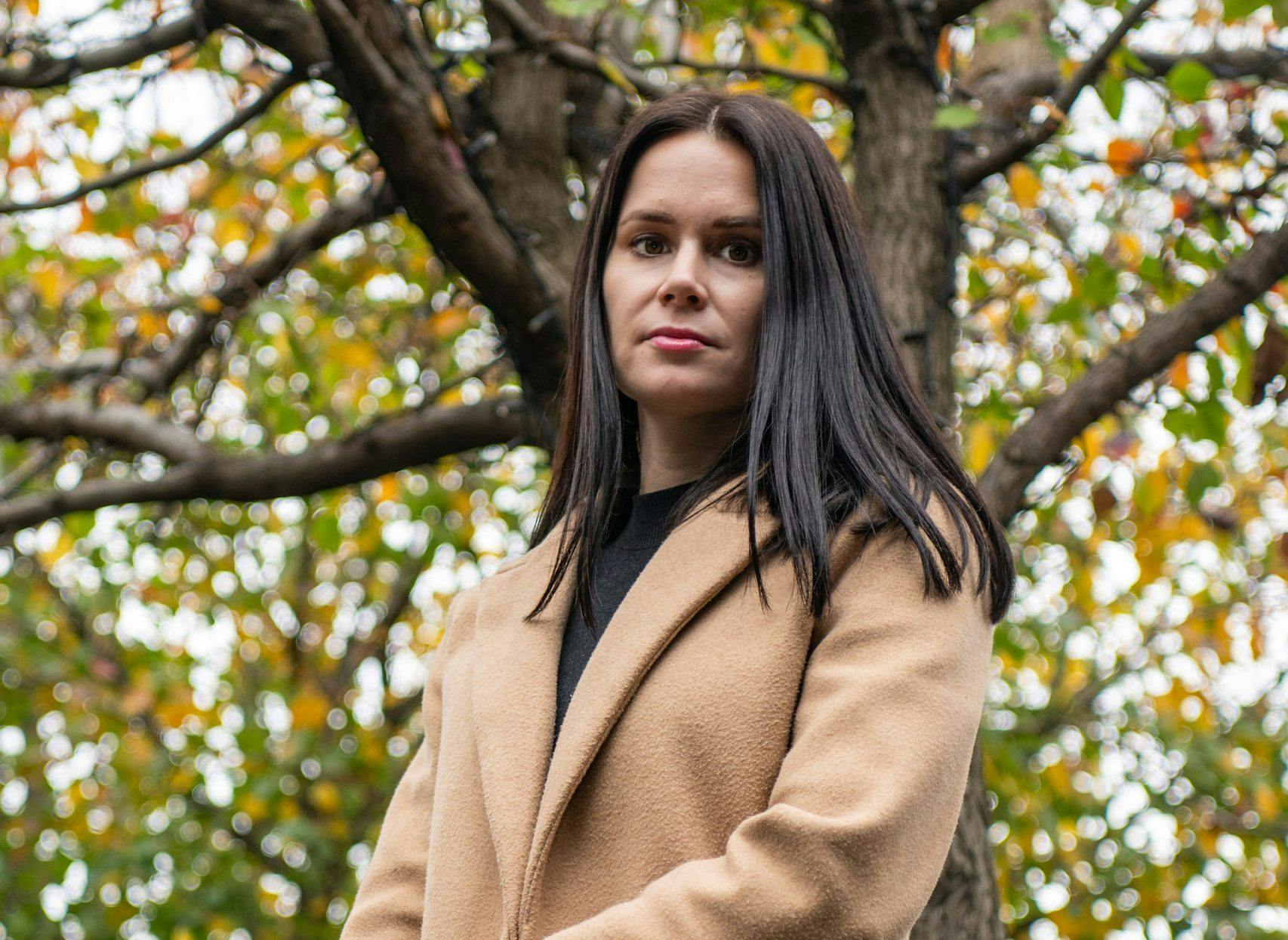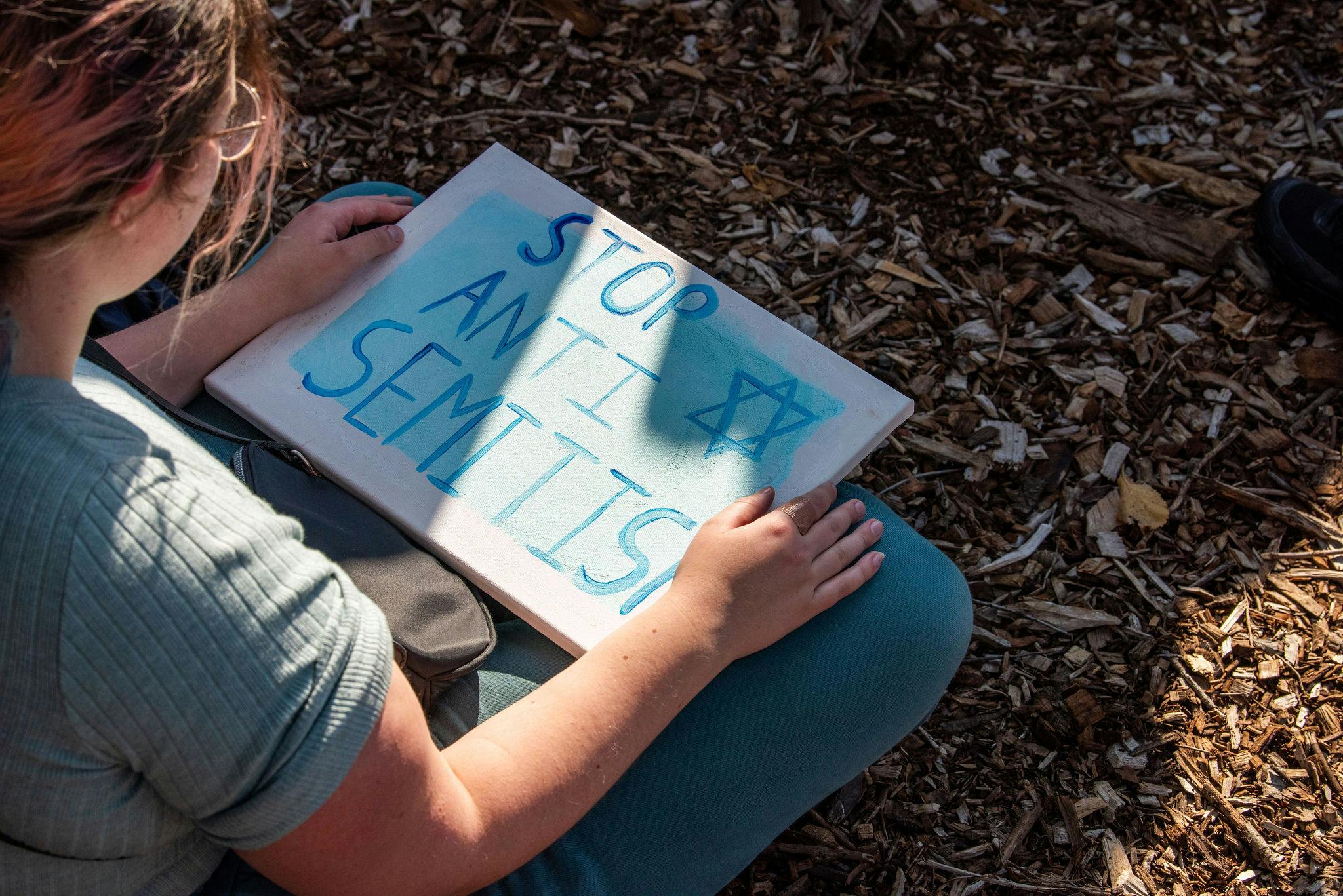Published: 5 December 2023
Last updated: 5 March 2024
In the 1970s, a move by activists to delegitimise the state of Israel was rejected as extremist fringe by Australian students; today the idea is received wisdom.
The French have a saying, "plus ca change, plus c’est la meme chose”. Roughly translated, the more things change the more they remain the same.
The saying came to mind as, sifting through some old papers, I came across a report which I wrote as a 19-year-old in 1975, in my role as President of the Australasian Union of Jewish Students (AUJS).
My report was written in response to anti-Israel activism by the Australian Union of Students (AUS). The report was entitled "The AUS Campaign”.
What struck me, in re-reading my report, was that at the time anti-Israel activism was confined to extremists; it was recognised as fringe by the majority of students.
Today, the student extremists have become the establishment. They are the professors. And not only the professors. They also run the National Tertiary Education Union (NTEU).

These professor-activists participated in a recent blockade of a Melbourne port, designed to prevent an Israeli ship from docking. Nick Riemer – a senior lecturer in English at Sydney University and president of the Sydney branch of the NTEU – is the most outspoken.
In his social media posts since October 7, like so many others, he fails to mention (let alone condemn) the barbarity of the attacks on Israel and is blind to the crimes Hamas deliberately committed against civilians, while accusing Israel of war crimes for targeting terrorists.
Others have documented this wilful blindness, so I won’t repeat all the details here. My point is that this didn’t come out of nowhere.
the student extremists have become the establishment. They are the professors. They also run the National Tertiary Education Union.
My report covered the developments of 1974-75. At its January Council of 1974, AUS, the peak "representative" body of campus student councils, passed a series of crude and extreme anti-Israel resolutions. The most relevant of these read:
"AUS informs the National Union of Israeli Students that AUS does not recognise the existence of the State of Israel, or of the National Union of Israeli Students (NUIS)", and "that AUS supports the liberation forces of Palestine."
The motion was easily defeated. I wrote in my report: "The resolutions, because of their extreme nature, were overwhelmingly rejected on campus by margins of up to 10-1. They offered no alternatives and were so simply (and naively) anti-Israel, that a majority of Australian students rejected them completely."
It’s important to understand what the AUS tried to do. The convention at the time was that the resolutions passed at the AUS Council (which was convened annually in January during the summer break and dominated by activist student leaders usually acting without consultation with their constituents) stood as policy unless reversed by a majority of students attending duly convened campus general meetings on a majority of campuses.
In other words, the onus of achieving the double majority required to reverse the activists' policies fell to the opponents. Had the motion succeeded, it would have been very difficult to reverse.
As I observed in my report, the initial AUS resolution came as something of a shock. The AUS had previously been supportive of Israel; in fact, it had sponsored the admission of NUIS into the Asian Students Association in 1972.
Perhaps it shouldn’t have been; Australia had withdrawn from Vietnam in 1972 and the Left was looking for an issue. Then came the Yom Kippur War in 1973 and the global oil shock. In 1974, the PLO was granted observer status at the UN. In the same year Israel was expelled from UNESCO.
It soon became clear that the resolution in 1974 wasn’t an aberration - there was a small group of students determined to delegitimise Israel. The following year, at the annual council in January 1975, the following resolution was passed:
“AUS supports the establishment of a Democratic Secular State of Palestine (encompassing the area of Mandate Territory) wherein all people presently residing in Israel and all Palestinian Arabs forcibly exiled from their homeland will have the right to Palestinian citizenship.
“This motion embodies the right of Palestinian citizens of all religions, race, colour creed and sex, to the protection of the new State, and rejects racist legislation, such as the present Zionist ‘Law of Return’.”
Voting on this Resolution closed on Friday, June 6. Fifty-nine of the 73 campuses voted. The final vote was 216 against, 45 in favour, and 24 abstentions.
The somewhat strange voting system meant that any campus which did not hold a student meeting to vote was automatically taken to have silently ratified the resolutions, as indeed were campuses which had voted against them but failed to lodge their vote in time.
The AUJS estimate at the time was that no more than 19 of the available 292 votes were cast in favour of the democratic secular state concept (and a similar resolution recognising the PLO received even fewer votes).
I should acknowledge the huge endeavour on the part of the Jewish student leadership of the time (with the active support of the Jewish communal organisations) to bring about a vote at the vast majority of campuses throughout Australia – in the capital cities and regionally. It fell to the Jewish students in most cases to agitate for a campus vote, to avoid the activist AUS position being automatically endorsed.
I should also acknowledge that, for the most part, the debates were conducted in a respectful manner.
The idea that Jewish students would be intimidated into not expressing their views was simply unthinkable at the time.
There were some violent incidents to which I will refer, and the debates and interactions between the opposing speakers were not without some antisemitic remarks and undertones, but the Jewish student leadership were, by and large, able to advocate, and indeed advocate successfully, in support of Israel unimpeded.
I don't want to look back at this era through rose-coloured glasses, but the idea that Jewish students would be intimidated into not expressing their views, howled down or even refused entry on the basis of their Zionist beliefs was simply unthinkable at the time.
The main point is that the anti-Israel sentiment was overwhelmingly rejected. Without detracting from the advocacy skills of the Jewish student leadership, the prevailing sentiment on campus was that the effective dismantling of a state which Australia was instrumental in creating, and the only democracy in the Middle East, was unacceptable.
How different would it be today.
Other sections of my 1975 report show chilling precursors to the violence and boycott actions that are now mainstream.
AUS invited two spokesmen from the General Union of Palestinian Students (GUPS) to undertake campus tours. AUJS opposed the visit and mounted a peaceful protest against the visiting spokesmen. But, as I described in my report, “someone” – probably known to the then AUS president – “rang the Trades Hall Council and alerted the May Day marchers to the Jewish demonstration”.
As a result, “at approximately 2pm on May 4 [1975] some 150-200 Maoists and local members of the Arab community rounded the corner at Drummond Street, Carlton. Their arsenal included clubs, flagpoles, and every other crude weapon imaginable. Amongst the victims was a 70-year-old on his way back from the [Carlton Jewish] cemetery.”
A TV film crew was present. I noted that “the film is a clear indictment of several people involved in promoting the AUS anti-Israel resolutions at January Council”.
The AUS also mounted a precursor to the Boycott, Divestment and Sanctions (BDS) campaign that has become ubiquitous on university campuses. At the time, AUS ran a student travel service. In 1975, the AUS called for the cessation of all flights to “occupied Palestine” until the “Zionist entity” was overcome. The stated intent was “to break the back” of the Israel tourist industry.
The AUS leadership were very indignant when AUJS responded with posters reading “AUS – THE ONLY TRAVEL AGENCY TO SUPPORT HI-JACKING”. Without any sense of irony, AUS argued that student services and politics ought not to mix.
So much of what I wrote as a 19-year-old about campus life could have equally been written today; and yet something very significant has changed.
What was once fringe, would now be considered mainstream, at least in the campus environment. What was once questionable, would now be considered the received wisdom. What was then considered a tendentious worldview, would now be the stuff of academic teaching and learning. Not everywhere, but overwhelmingly.
We have reason to worry.
Photo: Pro-Palestinian student protest at the Sydney University Footbridge (Nick Riemer/X)




